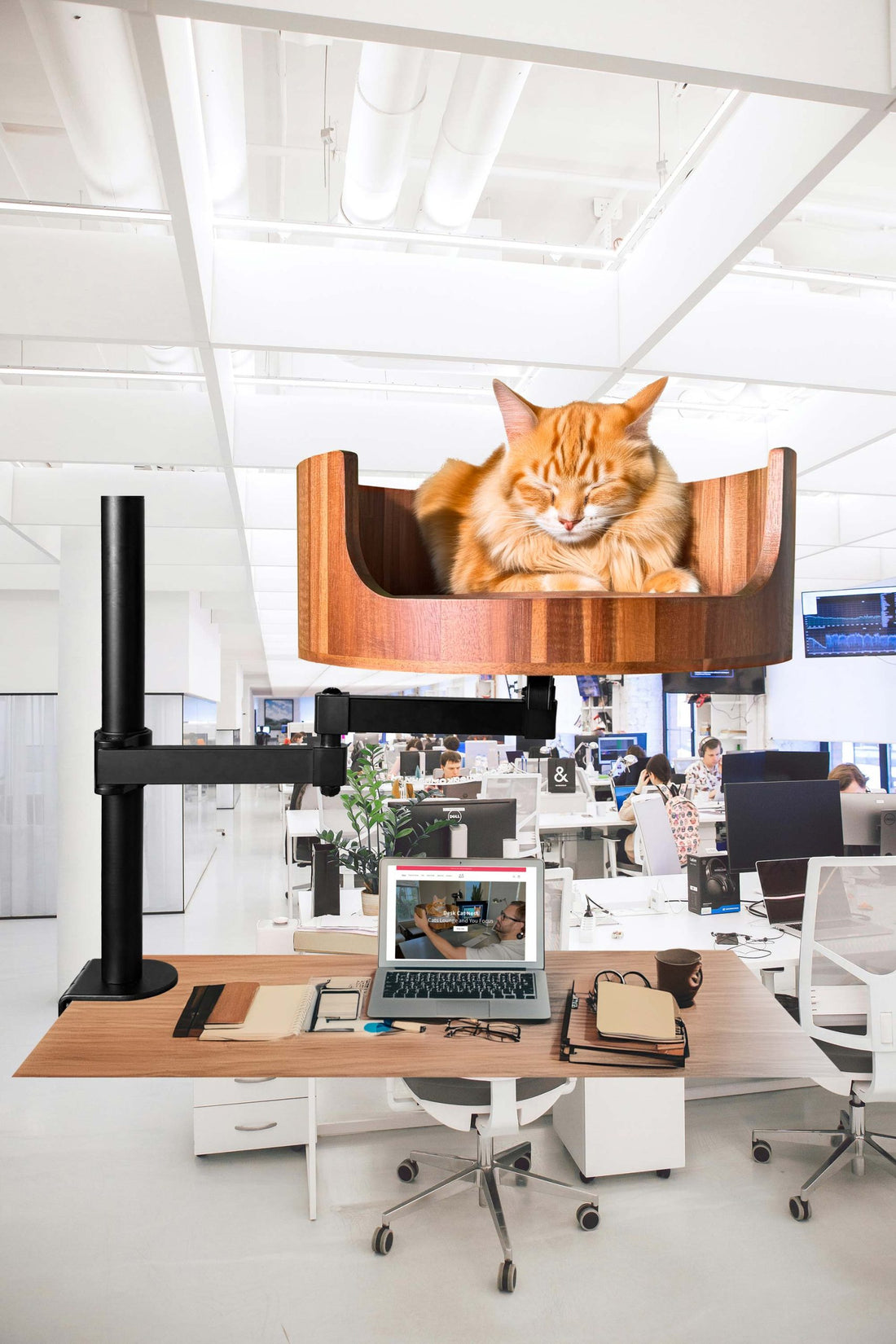
Why Does My Cat Attack My Legs? Understanding the Behavior
Share
Have you ever experienced the sudden and unexpected attack of your furry feline friend on your legs? This behavior can be quite bewildering and even painful at times. Understanding why your cat exhibits this behavior is crucial in fostering a harmonious relationship with your pet. In this article, we will delve into the reasons behind why your cat may be attacking your legs and how you can effectively address this behavior.
First and foremost, it is essential to recognize that cats are natural hunters and have a strong predatory instinct. By attacking your legs, your cat may be exhibiting this inherent hunting behavior. Additionally, your cat may be seeking attention or playtime when it attacks your legs. Understanding the underlying motives behind this behavior can help you tailor your approach in addressing and redirecting their actions. Stay tuned as we explore various strategies and techniques to manage and curb your cat's leg attacks, ultimately fostering a deeper bond with your beloved pet.
1. Cats may attack our legs out of playfulness or pent-up energy, especially in breeds known for high activity levels.
2. It's important to provide cats with appropriate outlets for their natural hunting instincts, such as interactive toys or play sessions.
3. Stress or anxiety can also trigger aggressive behavior in cats, so creating a calm environment is crucial.
4. Punishing a cat for leg attacks can worsen the behavior, as they may see it as a form of play.
5. Seeking advice from a veterinarian or animal behaviorist can help address underlying issues causing leg attacks.
Understanding Cat Behavior
Cats are predators by nature, and their instincts may lead them to exhibit behaviors such as attacking legs. This behavior can be traced back to their hunting instincts, as cats are wired to chase and pounce on moving objects. Additionally, cats may attack legs as a form of play or to seek attention from their owners. Understanding the underlying reasons behind this behavior is essential in addressing it effectively.
Environmental Enrichment
Providing a stimulating environment for your cat can help prevent them from attacking your legs. Investing in toys that mimic prey, such as feather wands or laser pointers, can redirect their hunting instincts towards appropriate outlets. Additionally, creating a cat-friendly space with climbing structures, scratching posts, and cozy hiding spots can keep your feline friend entertained and mentally stimulated.
Interactive Playtime
Engaging in interactive play sessions with your cat can help strengthen your bond and provide them with a constructive outlet for their energy. Setting aside dedicated time each day to play with your cat can help reduce their desire to attack your legs out of boredom or frustration. Experiment with different types of toys and play styles to discover what captures your cat's interest the most.
Training and Positive Reinforcement
Using positive reinforcement techniques, such as rewarding your cat with treats or praise for desirable behaviors, can help discourage them from attacking your legs. Consistency is key when training your cat, so be patient and persistent in reinforcing positive behaviors. Avoid punishing your cat for attacking your legs, as this can lead to fear or aggression.
Consulting a Professional
If your cat's leg attacks persist despite your best efforts, it may be beneficial to seek guidance from a professional behaviorist or veterinarian. They can help assess the underlying reasons for your cat's behavior and provide tailored advice on how to address it effectively. Additionally, they can rule out any potential medical issues that may be contributing to your cat's behavior.
Frequently Asked Questions
Why does my cat attack my legs?
There are a few reasons why your cat may be attacking your legs. It could be due to play aggression, redirected aggression, fear or anxiety, or simply seeking attention. Cats may also attack moving objects out of their natural hunting instincts.
Can the Desk Cat Nest help prevent my cat from attacking my legs?
Yes, the Desk Cat Nest provides a cozy and safe space for your cat to relax and play, which can help redirect their energy away from attacking your legs. By giving your cat a designated area to satisfy their instincts, they may be less likely to exhibit aggressive behavior towards you.
How can I encourage my cat to use the Desk Cat Nest instead of attacking my legs?
Introduce your cat to the Desk Cat Nest by placing treats, toys, or catnip inside to entice them. Reward your cat with positive reinforcement when they use the nest, and provide a comfortable and inviting environment that encourages them to spend time there.
Is the Desk Cat Nest safe for my cat to use?
Yes, the Desk Cat Nest is designed with your cat's safety and comfort in mind. The materials used are non-toxic and durable, providing a secure and cozy space for your cat to enjoy. Always supervise your cat when using the nest to ensure their wellbeing.
Will the Desk Cat Nest solve all aggression issues with my cat?
While the Desk Cat Nest can help reduce aggressive behavior by providing a stimulating environment for your cat, it may not entirely eliminate all aggression issues. It is important to address the root cause of your cat's behavior through training, enrichment, and consultation with a veterinarian or behaviorist if necessary.
In conclusion, the Desk Cat Bed is a valuable solution for addressing the issue of why your cat may be attacking your legs. By providing a comfortable and safe space for your feline friend to rest and relax, the Desk Cat Bed can help reduce stress and anxiety, ultimately leading to a decrease in aggressive behavior towards your legs. Additionally, the elevated design of the bed allows for a sense of security and a clear view of their surroundings, promoting a sense of calm and contentment. Invest in a Desk Cat Bed today to provide your cat with a peaceful retreat and improve your relationship with your furry companion.



















































